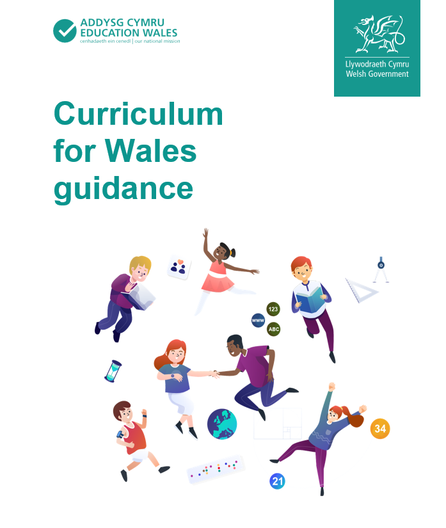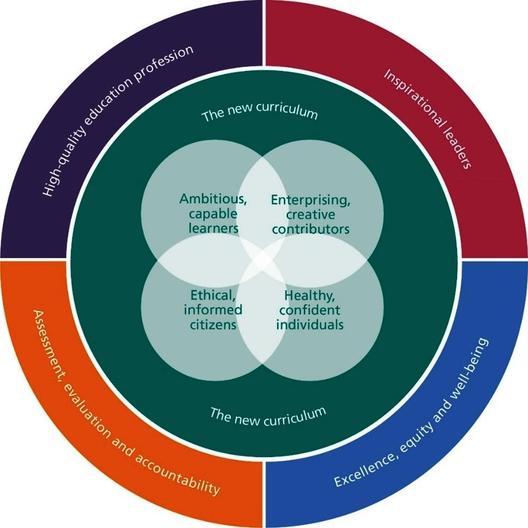Curriculum for Wales

Click here to view our curriculum document

The whole approach to developing young people aged 3 to 16 will change. The new curriculum will have more emphasis on equipping young people for life. It will build their ability to learn new skills and apply their subject knowledge more positively and creatively. As the world changes, they will be more able to adapt positively. The new curriculum will bring this about by making learning more experience-based, the assessment of progress more developmental, and by giving teachers the flexibility to deliver in more creative ways that suit the learners they teach.
The four purposes are the shared vision and aspiration for every child and young person.
They are:
- Ambitious, capable learners who are ready to learn throughout their lives;
- Healthy, confident individuals who are ready to lead fulfilling lives as valued members of society;
- Enterprising, creative contributors who are ready to play a full part in life and work;
- Ethical, informed citizens who are ready to be citizens of Wales and the world.
Our Vision at St. Joseph's Catholic Primary School
At St. Joseph's children experience an inspiring and innovative curriculum where they become resilient, progress, and achieve both in and out of the classroom. We believe in a creative curriculum with literacy and numeracy at it's heart .We inspire our children and everyone who comes here to be:
‘Together in Christ - Living, Learning and Growing.’
School Aims
To provide a living and working example of a Catholic Christian Community.
To create a pleasant, secure and stimulating environment in which everyone has the opportunity to develop spiritually, morally, socially, emotionally, physically and intellectually in an ethos informed by Catholic Christian values.
To enhance the ethos of the school by fostering Catholic Christian values and actions through caring, warm and compassionate attitudes from staff, governors, parents and children.
To nurture in all persons positive attitudes to learning enabling them to adapt to new ideas and methods and thereby achieve their full potential through the acquisition of relevant knowledge and skills.
To help all pupils develop lively, enquiring minds, the ability to question and argue rationally and apply themselves to tasks and physical skills.
To help pupils acquire knowledge and skills relevant to adult life and employment in a fast changing world.
To promote equality of opportunity within the school and respect for all irrespective of sex, nationality, colour, creed, background, and intellectual ability, emotional, social or physical handicap.
To preserve and develop our own cultural identity within Wales, while at the same time promoting an awareness of and respect for cultures and creeds different from our own.
To foster links with the Parish, wider community, local businesses and industry.
Children's learning will be broad and balanced and focus on six areas of learning: Language, Literacy and Communication, Mathematics and Numeracy, Health and Well-being, Humanities, Expressive Arts, Science and Technology. Literacy, Numeracy, Welsh and DCF will be cross curricular and feed into all areas of learning. There will be progression reference points at ages 5,8, 11, 14 and 16 (Phases).


Pedagogy
Pedagogy is at the heart of the new curriculum. In designing our own bespoke curriculum, we have considered the different pedagogical approaches we need to employ to support learners in realising the four purposes. We have a strong vision of learning and teaching which considers the ‘why’ and ‘how’ as well as the ‘what’. Our vision recognises the integral role of the learning environment in supporting effective learning.
At St. Joseph's Catholic Primary School we provide teachers with:
The skills to demonstrate higher level understanding of the 12 Pedagogical Principles included in the Curriculum for Wales guidance documentation.
The understanding to collaborate effectively with colleagues in their own school and in other schools to raise standards.
The capacity to create a proactive school ethos, where a deeper understanding of the underlying values and principles of pedagogy inform classroom practice and influence all our teaching approaches for our learners.
The Pedagogical Principles
Curriculum design for all learners is underpinned by twelve pedagogical principles.

